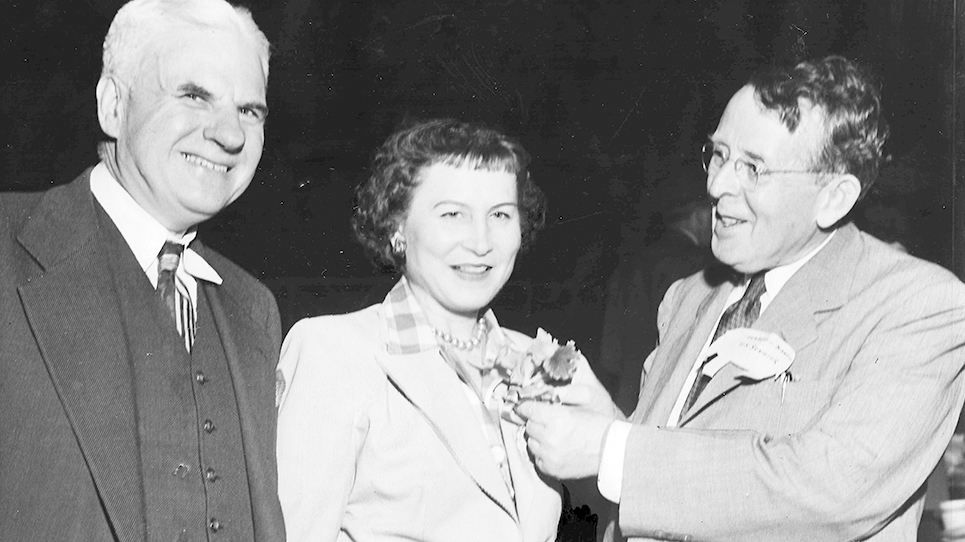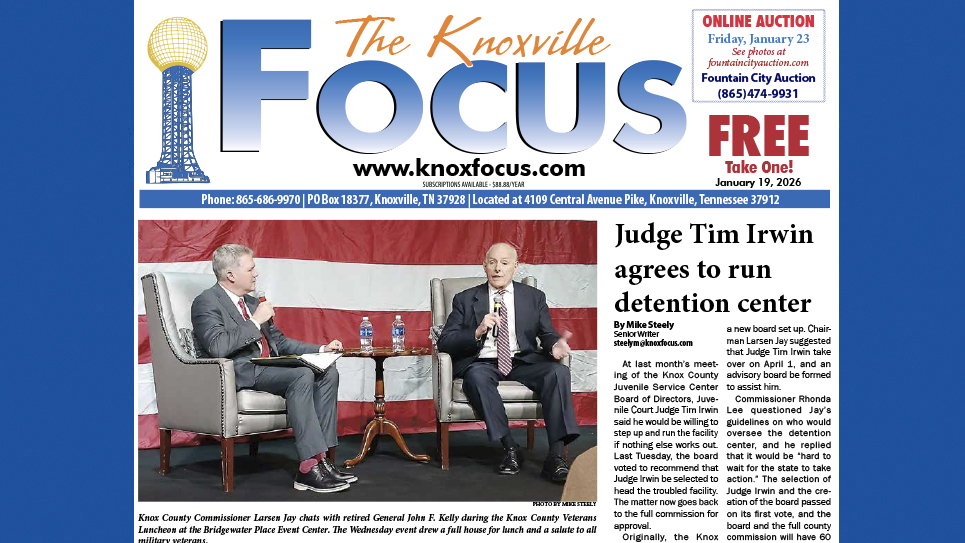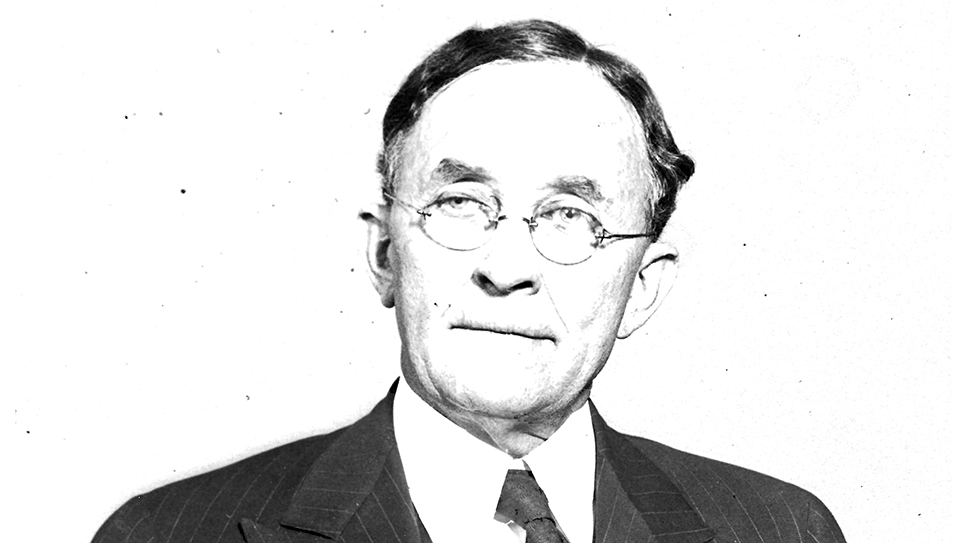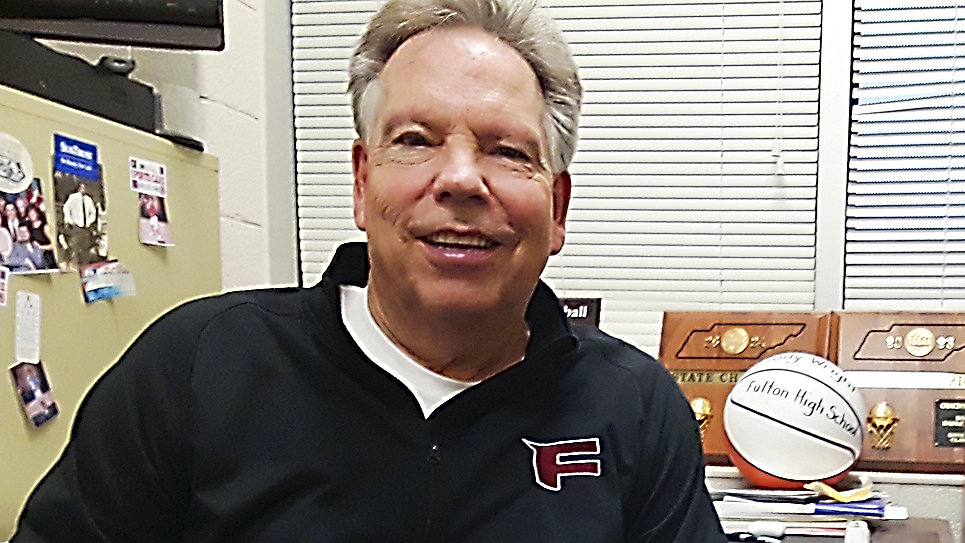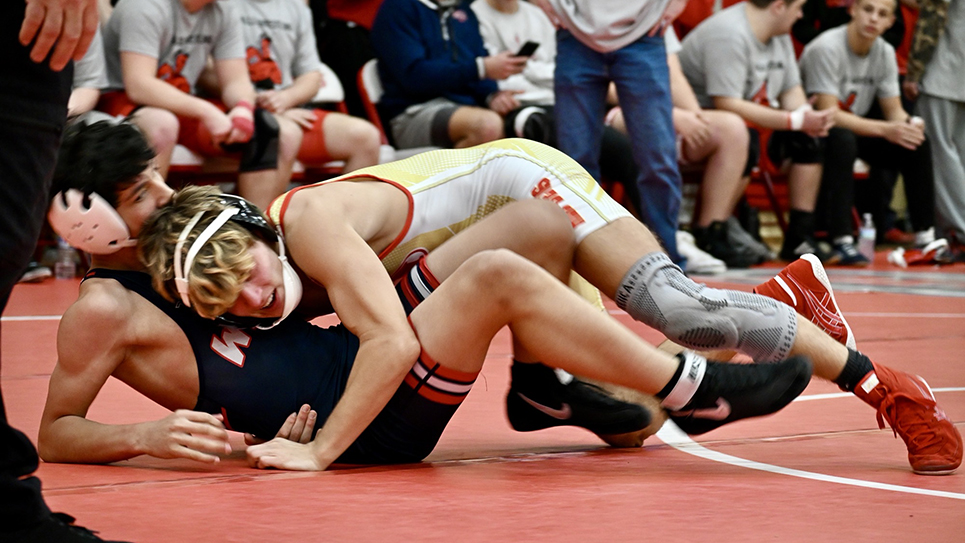The Gentleman From Missouri: Forrest C. Donnell
During a time when Democrats were the majority party in Missouri, Forrest Donnell was one Republican who could win statewide elections, albeit by frighteningly small margins. A lawyer by profession, Donnell was a man of exacting honesty who would not send a letter extending Mrs. Donnell’s own good wishes without telephoning her to ask about it first. Standing just under six feet tall, with a head of curly reddish-brown hair, Forrest Carl Donnell looked the part of both a successful attorney and a public official. Dignified and well-dressed, yet approachable and friendly, Forrest Donnell shocked Missouri Democrats with his two electoral victories during the 1940s. Missouri Democrats helped to boost GOP fortunes in the Show Me State inadvertently because of an effort to deny Donnell the office to which he had been elected. One newspaper thought the issue was still producing Republican votes almost twenty years after the fact.
Donnell’s father had been the mayor of Maryville, Missouri, which gave Forrest perhaps a greater interest in government than most younger fellows. Yet unlike his family, Forrest Donnell did not follow the Democratic politics of his father but rather worked for the candidacy of Herbert Hadley, the first Republican to be elected governor of Missouri since post-Reconstruction. Donnell was also profoundly influenced by Selden P. Spencer, who won popular election to the United States Senate from Missouri. Senator Spencer recruited Donnell out of law school and took him into his law firm. Raised a Presbyterian, Donnell did what many men often do and took his wife’s faith and became an active Methodist. Faith was deeply important to Forrest Donnell and would be until the end of his life.
Forrest Donnell enjoyed an excellent law practice and was successful even during the Great Depression. Donnell had been active in his community, living in a wealthy suburb of St. Louis when he ran for his first elective office. Forrest Donnell started at the top, seeking the Republican nomination for governor in 1940. Virtually nobody in the Show Me State believed Donnell had even a remote chance of winning when he first began his campaign. It was a presidential election year as well and nobody had proven to be more popular as a vote-getter than Franklin Delano Roosevelt.
It quickly became clear to both newsmen and politicians Forrest Donnell was a man who campaigned hard. Affable with a genuine air of sincerity, Donnell moved well ahead of his three opponents inside the Republican primary. Missouri had two big urban machines in the state; one in Kansas City headed by Harry Truman’s benefactor, Tom Pendergast, and another in St. Louis, which produced Missouri’s other United States senator, Bennett Champ Clark. Harry Truman was up for reelection to the Senate that year and had to fight both the White House and incumbent Governor Lloyd Stark inside the Democratic primary.
Forrest Donnell showed surprising strength in the primary election, winning both Kansas City and St. Louis by huge majorities. Donnell did equally well in most of the rural counties of the state. Democrats nominated Lawrence “Larry” McDaniel, an amiable, rotund regular who was the candidate of the Democratic machine headed by Mayor Bernard Dickman of St. Louis. McDaniel was a member of the Sunday School class taught by Forrest Donnell.
Even with his showing inside the GOP primary, virtually no one gave Donnell any kind of chance of winning the general election. Democrats remained supremely confident through Election Day. As the ballots were counted and vote totals trickled in, GOP presidential nominee Wendell Willkie was beating Franklin Roosevelt in many of Missouri’s rural counties. The president edged out Willkie and carried the Show Me State because of the avalanche of votes he received in Kansas City and St. Louis. Larry McDaniel went to bed 50,000 votes ahead and when he woke up the next morning as the returns continued to come in, he was shocked to discover his lead was down to 17,000 votes. Eventually, Forrest Donnell accomplished what was believed to be impossible; he became the first Republican to be elected governor of Missouri since 1928. Donnell won by 3,613 votes out of quite nearly two million cast. Donnell was the only Republican on the statewide ticket to win that year. Harry Truman later wrote Donnell had helped him to beat his Republican opponent in the general election by attesting to the fact no man could become Grand Master of the Masons who was the kind of character Truman’s challenger asserted him to be.
Following Donnell’s election, the mahatmas of Missouri’s Democratic Party gathered in secret at St. Louis’ DeSoto Hotel. Among the participants was Senator Bennett Clark, Mayor “Barney” Dickman, State Attorney General Roy McKittrick, and several others. The topic of conversation was utilizing an obscure part of the law to try and keep Forrest Donnell from being inaugurated as governor. McKittrick, an owlish-looking man with round glasses, gave the group some sound advice, saying he and his fellow rural Democrats had four years to get over Donnell’s election, while the city fellows had to worry about the off-year election. The group ignored the attorney general’s wise advice.
For six weeks, led by the legislative delegation from St. Louis, the Democratic legislature stalled Donnell’s oath of office. Incumbent Governor Lloyd Stark, although a Democrat, insisted Donnell be installed as the state’s chief executive. Finally, the State Supreme Court ruled that Forrest C. Donnell had been duly elected governor and was to be inaugurated.
The effort to “steal” the governorship did more to boost Republicans and doom several Democratic candidates than any other single issue. Mayor Dickman was beaten by a former judge who was a Republican.
Forrest Donnell’s adherence to the law and a sense of rectitude caused big trouble for Ralph Coghlan, the self-important and mercurial editor of the St. Louis Post-Dispatch. TIME magazine noted Coghlan’s propensity for issuing snorting and fire-breathing editorials, especially over a pet peeve. One of Coghlan’s pet peeves was the three elderly cannons on the grounds of the State Capitol in Jefferson City. Coghlan huffed the old relics did not belong in a museum nor the grounds of the Capitol, but rather ought to be consigned to a rubbish heap. Governor Donnell, a stickler for the law, replied he could not prove the cannons belonged to the state so he could not legally give them away. That reply really riled the editor. The fuming editor was talking to a tree “surgeon” who was helping Coghlan to plant some locust trees. Coghlan barked he was “very serious” about removing the cannons and getting rid of them. The tree surgeon, Sidney Stearns, replied he and a friend would go and remove them. A delighted Coghlan readily agreed to underwrite the expenses. The plot was foiled when Stearns and his friend were arrested trying to abscond with the cannons. Matters proceeded to get worse when the police discovered “a loaded revolver, a full can of gasoline and a sixth tire in Stearns’ truck.” The Post-Dispatch tried to make light of the matter, jokingly referring to tree-man Stearns as “the General.” The newspaper published a photo of Stearns holding up two fingers in the “V-for-victory” sign. Eventually, the newspaper grudgingly had to admit the part played in the farce by its own editor, Ralph Coghlan. Governor Forrest Donnell, not in the least amused, ordered the editor’s arrest for larceny. Donnell, appalled, sputtered the entire affair was “outrageous” and had been “filled with a spirit of anarchy and disrespect for the law.” Ominously, the governor stated, “The law is going to be enforced, the Post-Dispatch notwithstanding.”
Missouri law did not allow governors to serve a second consecutive term. Missouri Republicans were eager for Donnell to run for the United States Senate seat held by Bennett Champ Clark. Once a colossus of Missouri politics and an excellent orator, Clark’s loss of his wife accelerated his already serious drinking. Clark had also been adamantly for America’s status as a neutral country as war clouds gathered over Europe and the Far East. Tagged with the isolationist label and hated by internationalists, Clark had also been a critic of much of the New Deal, which caused him problems inside his own party. Senator Clark began missing speaking dates without explanation and was challenged inside the Democratic primary by Attorney General Roy McKittrick. The attorney general toppled Clark by less than 18,000 votes out of more than 300,000 ballots cast.
Forrest Donnell swept past six challengers in his own primary, running more than 80,000 votes ahead of his nearest challenger. Roy McKittrick proved to be more popular than Larry McDaniel had been in Missouri’s more rural counties, but thousands of Missourians who backed Bennett Champ Clark either skipped voting in the Senate race or voted for Donnell. The final total was 779,129 votes for Forrest Donnell and 777,229 votes for Roy McKittrick, a difference of 1,900 ballots.
Harry Truman had been on the ballot once again in 1944 as a candidate for the vice presidency with Franklin Roosevelt. Missouri having sent a Republican to Washington, D.C., was something of an embarrassment to Truman. Forrest Donnell took office on January 3, 1945, and with the resignation of Harry Truman to become vice president of the United States, became Missouri’s senior U.S. senator.
Many of Donnell’s colleagues admired his personal honesty and sincerity yet were less than thrilled with the Missourian’s constant insistence upon having a definitive answer before voting. Senator Donnell proved to be a formidable investigator as a member of the Senate and his nitpicking an issue proved to reveal some interesting answers upon occasion. Democrats in the Senate once did some quick political juggling to keep Donnell off Estes Kefauver’s special committee looking into crime. Senator Donnell was eager to look into crime and corruption in both Kansas City and St. Louis, something senatorial Democrats did not much like. The majority party then quickly changed the rules to allow Vice President Alben Barkley to appoint the members of the Kefauver Committee.
Nor did Senator Forrest Donnell mind being alone when his convictions were involved. When President Harry Truman nominated hostess and Democratic fundraiser Perle Mesta to be the ambassador to Luxembourg, Donnell objected. The Missouri senator demanded to know if the Senate’s Foreign Relations Committee had ever reviewed Mesta’s qualifications to be named an American ambassador. As it happened, the Foreign Relations Committee had not. Senator Donnell then read to his colleagues a report proving she had no qualifications for the post. That was solely the opinion of Forrest Donnell, who was the only senator to register a “no” vote on Mesta’s nomination.
While oftentimes irritating to his colleagues, Forrest Donnell would insist upon a declaration for the record. When the Senate was considering approval of the North Atlantic Pact, Donnell got to his feet and cited a newspaper article that stated the agreement constituted “a moral agreement” for America “to fight.” Donnell asked simply if that was true. Tom Connally of Texas, chairman of the Foreign Relations Committee, reacted like a bull seeing red, blustering and snorting. Pressed hard by Senator Donnell, Connally finally steered clear of the word “moral” before declaring there was no “automatic” commitment for the United States to go to war under the pact. That contradicted President Truman’s statement, saying the North Atlantic Treaty was “unmistakable proof of the joint determination of the free countries to resist armed attack from any quarter.” That caused Secretary of State Dean Acheson to implore newsmen to stop trying to collect statements from members of Congress, the State Department, and foreign embassies. “We’ve all got to be restrained,” Acheson pleaded.
Donnell lost his reelection bid in 1950 and went back to Missouri to practice law. Oddly, one of the reasons TIME magazine believed Donnell had lost was because many Missouri farmers thought they were sending a message to Harry Truman by voting for the senator’s Democratic opponent. The former senator died in 1980 at age 95.
© 2024 Ray Hill

